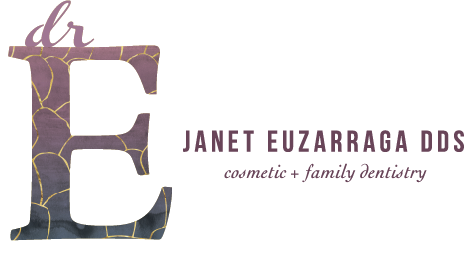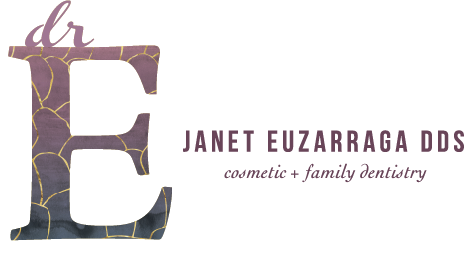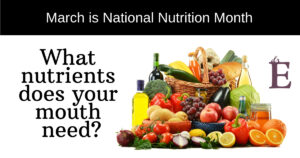March is National Nutrition Month. Find Out Optimal Nutrition for Teeth.
During National Nutrition Month, Dr. E wants to remind everyone that the foods you choose to eat can play a major role in your dental health, which is a window to your overall health. That’s why it’s important to maintain a healthy diet rich in vitamins and nutrients to helps build and maintain healthy teeth and gums.
Which vitamins and nutrients does your mouth need most? And which foods should you eat to promote good dental health? Here’s a quick checklist!
Calcium. While proper calcium intake is important during childhood to build strong, healthy teeth, it remains essential as we age. Studies show that those with a calcium deficiency are more than fifty percent more likely to develop gum disease than those who have enough calcium in their diet. Load up on milk, cheese, yogurt, broccoli and salmon. These foods are packed with calcium in order to help strengthen your teeth enamel and jawbone.
Vitamin D. This essential nutrient helps your body (including your mouth!) absorb calcium while boosting bone mineral density. If vitamin D is too low, our bones and teeth can weaken and become susceptible to fractures and other conditions, including gum disease, tooth decay, and underdeveloped teeth. Most health experts recommend that adults get a minimum recommended daily allowance of 600 IU and children should get a minimum of 400 IU.
Phosphorus. This nutrient works hand-in-hand with calcium and vitamin D in building strong bones and teeth, especially during childhood. Calcium relies on phosphorus to maximize bone strength and give proper structure to our bones and teeth. Look for phosphorus in protein-rich foods such as poultry, fish, meats, beans and dairy products.
Potassium. You can strengthen your jaw and improve bone mineral density by upping your potassium intake! Potassium has also been credited with helping blood clot properly, which can helps bleeding gums heal more quickly from flossing or an unexpected oral injury. Choose potassium-rich foods such as leafy greens, bananas, potatoes, avocados, prunes, lima beans, and tomatoes.
Vitamin C. Upping your vitamin C intake can help guard against gingivitis. It can also strengthen your gums and the soft tissues in your mouth. Without enough vitamin C, the tissues that help hold teeth together securely can weaken, teeth can loosen, and the risk of gum disease increases. So, be sure your diet includes a variety of citrus, potatoes, and leafy greens for adequate vitamin C.
Zinc. The good news is that zinc is naturally found in our saliva! Zinc is linked to fighting against bacteria and plaque to help head off cavities and gum disease. Make sure your mouth is getting enough zinc by choosing foods such as seeds, mushrooms, cashews, legumes, red meat and (bonus!) dark chocolate.
During National Nutrition Month — and beyond — Dr. E encourages patients to eat a healthy, balanced diet to help maintain a healthy, beautiful smile. BUT, in addition to choosing healthy foods, don’t forget that regular dental checkups are also essential to your dental health.
Is it time for your check up? Contact Dr. E Cosmetic and Family Dentistry today: 480-494-2435


